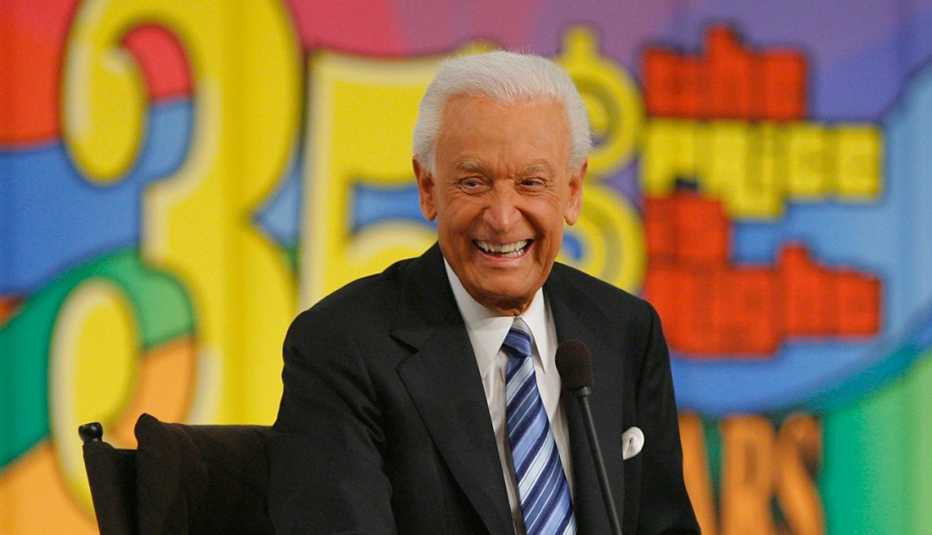AARP Hearing Center


It wasn’t just his matinee idol good looks, sly wit or polished delivery that made Bob Barker one of the best game show hosts in television history, anchoring The Price Is Right for 35 years before his retirement at age 83 in 2007. It was also his unflappability, the way he deftly fended off unwelcome kisses and revived fainting contestants. As he once explained it: “What I do for a living, there's no substitute for experience. ... You can depend on surprises.”
Like the time announcer Johnny Olson directed the famous “Come on down!” line to a female audience member, who ran down to contestant's row so excitedly, jumping up and down with such vigor, that she displaced her tube top. The studio audience, which saw it all, screamed with laughter. And later, Barker famously quipped, “She came on down, and they came on out.”
Barker, whose death at 99 was announced by his longtime publicist, was hosting another game show, Truth or Consequences, in 1972 when CBS programming executives, hoping to attract more women viewers to the morning lineup, debuted a 90-minute block of game shows that fall: The Joker’s Wild, Gambit, and a reboot of The Price Is Right, a consumer-product-based program which aired on other networks from 1956 to 1965.
They set about searching for the man who would join bikini-clad models Janice Pennington and Anitra Ford and could pack a punch with the now-famous phrase, “And the actual retail price is …”
“I was 48 and didn’t have any thoughts about the rest of my life,” Barker reminisced to Entertainment Weekly in 2007. “It was just another show I thought I would have fun with and be well paid for.”
Instead, he became synonymous with it, and Barker, whose surname seemed destiny, would take The Price Is Right into the record books as the longest-running game show in history. He would also hold the title as the longest-tenured game-show host. Price became part of the American culture — in 1975, it was the first show of its kind to stretch into 60 minutes — and TV Guide has dubbed it the “greatest game show of all time.”



































































More From AARP
For the Band’s Robbie Robertson, Life Really Was a Carnival
Guitarist and songwriter influenced generations of musicians
‘Pee-wee Herman’ Star Paul Reubens Fought Private Battle With Cancer
Remembering the comedic TV and film actor
Looking Back at the Life and Career of Tony Bennett
‘I Left My Heart in San Francisco’ singer’s career spanned 7 decades and multiple genres